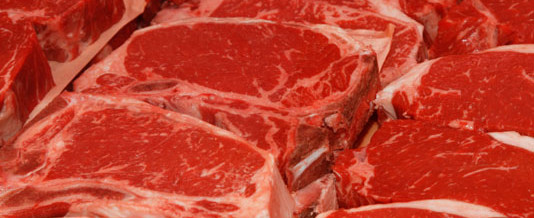A report by the International Agency for Research on Cancer (IARC) on Monday indicated that high consumption of red meat and processed meat could increase the risk of having cancer.
In a statement issued by the World Health Organisation (WHO), the agency evaluated the “carcinogenicity of the consumption of red meat and processed meat” after a thorough review of accumulated literature.
A carcinogen is any substance, radionuclide, or radiation that is an agent directly involved in causing cancer.
The IARC is an agency of the world health body.
A Working Group of 22 experts from 10 countries convened by the IARC Monographs Programme classified the consumption of red meat as probably carcinogenic to humans (Group 2A).
The statement said it was based on limited evidence that consumption of red meat caused cancer in humans and strong mechanistic evidence supporting a carcinogenic effect.
It said this association was observed mainly for colorectal cancer, adding that associations were also seen for pancreatic cancer and prostate cancer.
According to WHO, red meat refers to all types of mammalian muscle meat, such as beef, veal, pork, lamb, mutton, horse, and goat.
On processed meat, the statement said that it was classified as carcinogenic to humans (Group 1) based on sufficient evidence in humans that the consumption of processed meat caused colorectal cancer.
It said experts concluded that each 50 gramme portion of processed meat eaten daily increased the risk of colorectal cancer by 18 per cent.
The WHO referred to processed meat as meat that has been transformed through salting, curing, fermentation, smoking, or other processes to enhance flavour or improve preservation.
Examples of processed meat include hot dogs (frankfurters), ham, sausages, corned beef, and biltong or beef jerky as well as canned meat and meat-based preparations and sauces.
In the statement, Dr Kurt Straif, Head of the IARC Monographs Programme, said, “For an individual, the risk of developing colorectal cancer because of their consumption of processed meat remains small.
“But, this risk increases with the amount of meat consumed.
“In view of the large number of people who consume processed meat, the global impact on cancer incidence is of public health importance,’’ Straif is quoted as saying.
Also, Dr Christopher Wild, the Director of IARC, said, “ These findings further support current public health recommendations to limit intake of meat.
“At the same time, red meat has nutritional value.
“Therefore, these results are important in enabling governments and international regulatory agencies to conduct risk assessments.
“This will be in order to balance the risks and benefits of eating red meat and processed meat and to provide the best possible dietary recommendations,’’ the statement quoted Wild as saying. (NAN














